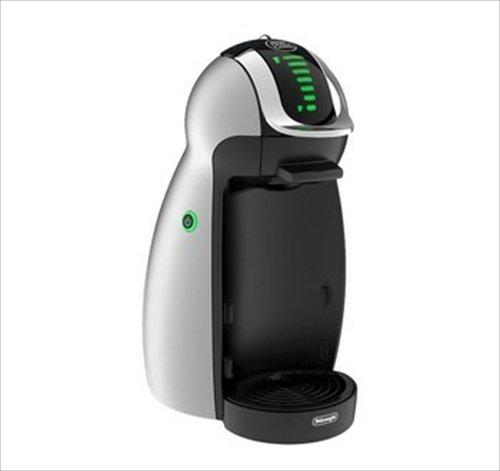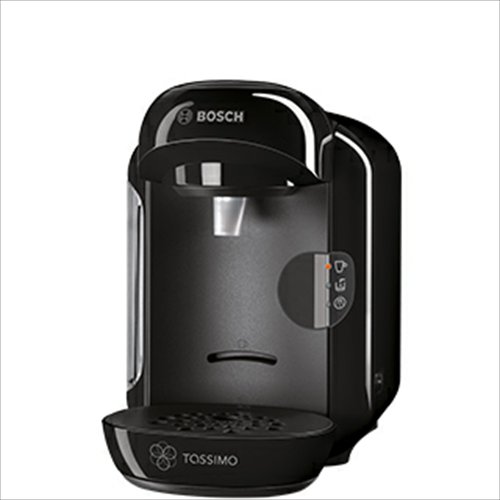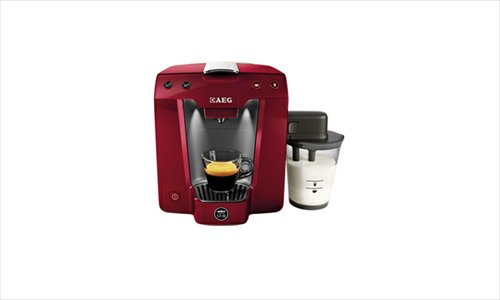Wake up & smell the coffee
In a country where the tea culture has been intimately bound up with the evolution of its history, tea would immediately spring to mind when it comes to the quintessential beverage. But with Western lifestyles reaching out its tentacles into an increasingly diverse nation, coffee is rising to challenge tea's popularity with traditional Chinese taste buds.
Cafes and coffee shops are opening across the country, especially in first- and second-tier cities, creating a coffee culture with Chinese characteristics and a niche market for pod and capsule coffee.
Glimpsing a cut-in ad promoting Nescafé Dolce Gusto while watching a TV drama online, 28-year-old Joyce Yang, a State-owned publishing house employee in Beijing, said she felt almost instantly attracted to way of the pod.
"The models showcased on the ad are pretty ritzy," Yang told the Global Times Wednesday. The coffee lover said she'll purchase one soon.
The Genio coffee maker, the latest added to the Nescafé Dolce Gusto lineup, is certainly one of the hottest sellers on the domestic market for capsule-coffee machines, hardly fledgling, but believed to have considerable potential given the country's growing number of affluent city-dwellers craving a posh lifestyle.
Sales of the entry-level Genio model going for 1,390 yuan ($229) have totaled 963 units so far on the Dolce Gusto's official outlet on tmall.com, China's largest business-to-consumer shopping site.
In addition to the hyped Nescafé Dolce Gusto, Kraft's Tassimo and the higher-end Nestlé Nespresso machines are among the best-known in the category.
A fancy lifestyle plus more convenience over traditional coffee machines are the dual selling points of the pod and the capsule machines, Wang Danqing, a partner at Beijing-based Acme consultancy, told the Global Times on Tuesday.
"It's not positioned to reach the mass market, but a nibble at a huge market with rising coffee demand would still be quite promising," Wang said.
Yan Qiang, a partner at Hejun Consulting in Beijing, found the capsule machines underwhelming.
"Coffee made with such machines is actually not so great," Yan told the Global Times on Tuesday. "For those who really care about quality and taste, it might barely be a killer product."
In addition, the potential environmental hazard associated with the worrisome recycling of capsules might be a concern in a country paying more heed to environment-related issues after years of rapid growth.
The waste of capsules and pods is already a problem in the UK, which recorded consumption of about 186 million capsules between February 2012 and 2013, according to London-based consumer market research firm Kantar Worldpanel.
Mixed-plastic capsules used by Dolce Gusto "cannot currently be recycled in the UK," though a company spokesman claims Nestle is "exploring a number of possible solutions," according to an article posted on the Guardian and Observer's Word of Mouth blog in April 2013.
"All the brands make much of their eco-efforts on their websites, and are no doubt striving to improve recycling numbers. But wouldn't it be better for the planet if pods didn't exist in the first place?" the article concluded.

Nescafé Dolce Gusto Genio coffee machine
If you want fresh coffee at home, Nestlé believes it have the answer. Its Nespresso coffee capsule system, debuting in 1986, is born for this purpose. The company also rolled out another system, Nescafé Dolce Gusto, in 2008.
The two systems are made exclusively for Nestlé coffee products, but not compatible with each other, making it impossible to share capsules.
While Nespresso capsules are only available online or in special Nespresso stores, the Dolce Gusto ones can be purchased in any store. In comparison with high-end Nespresso, the latter is more popular with the mass public and its routine budgetary concerns.
The Dolce Gusto family now has a collection of five standout designs. Genio is the latest edition. By pressing a button on one side, the little penguin-lookalike can automatically prepares 17 different hot and cold coffee beverages, including Espresso Intenso and Skinny Latte. Through Thermoblock technology, the machine heats water internally in no more than a minute. But when it comes to cold drinks, the water needs to be manually chilled with ice.
In addition, the device can also let users determine the strength of the coffee.
Dolce Gusto Genio features a body of 231 millimeters by 164 millimeters by 299 millimeters, with water storage up to 0.65 liters, being able to brew two or four cups at a time.
Available in black, silver or red, the machine sells for 1,390 yuan ($228.8) on the Chinese mainland market. Data from its official online retailing channel on China's B2C e-commerce platform tmall.com shows that the monthly sales of Genio have reached 177.

Tassimo T12 Vivy coffee machine
As the owner of coffee and tea brands, US-headquartered food giant Kraft will surely not miss potential opportunities on the capsule coffee machine market. The company developed and introduced its own coffee capsule system Tassimo in 2004 and is now hiring Germany's household appliances veteran Robert Bosch GmbH to manufacture.
Tassimo T12 Vivy was promoted as the most compact machine in the company's product range when unveiled in late 2013.
Thanks to a slim style water tank embedded into the side of the device, T12 Vivy is shorter in depth, with overall dimensions of 249 millimeters by 169 millimeters by 298 millimeters.
The handy water tank can hold 0.7 liters, brewing up to three cups of standard-sized beverages.
As with all Tassimo coffee machines, T12 Vivy also adopts Bosch's barcode reader technique.
Although it can only serve hot drinks, the choice of beverage brands is not limited to the Kraft portfolio.
You can enjoy Costa coffee or Starbucks coffee in the comfort of home as well. The machine ships for 99 euros ($135.8) on its website in white, black and rose.

A Modo Mio Favola Cappuccino coffee machine
Luigi Lavazza SPA, a nearly-120-year-old Italian coffee product company, has four capsule coffee systems. A Modo Mio is the latest as well as the most requested at consumer level.
Combining Lavazza's espresso extraction technology and German electronic equipment producer AEG's two-button milk frothing system, A Modo Mio Favola Cappuccino can help you enjoy the authentic Italian flavor of a creamy cappuccino and latte macchiato every day in your own home.
By pouring fresh milk in the side-attached glass frother and pushing a button, the machine can brew drinks you want in a minute. The water tank, sitting at the back of the unit, can store approximately 1 liter, good for preparing 10 to 15 cups of drinks.
Without the milk frother, the machine would take up almost the same space as a toaster. Sporting a body of 325 millimeters by 226 millimeters by 301 millimeters, it weighs 4.6 kilograms.
There are four presets - espresso, espresso long, cappuccino and latte macchiato. And you can also have milkshakes or Frappuccino as well if holding the latte macchiato button for two seconds longer.
The device is made exclusively for Lavazza branded beverages. According to Lavazza's UK online shopping platform, a package of 16 capsules retails for roughly 3.89 pounds ($6.49).
The machine is available in gray and red, shipping for 179 pounds ($299) on the site.